7 Hybrid Car Statistics & Facts in the UK: 2025 Update
-
Pete Ortiz
- Last updated:
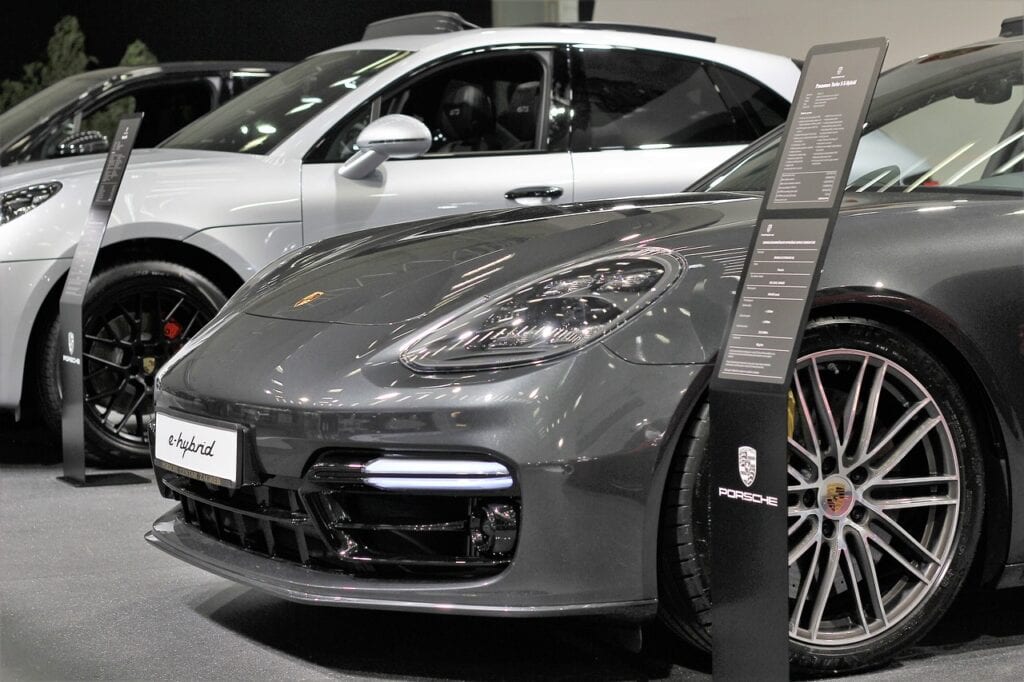
Hybrid cars are becoming increasingly popular in the UK. Unlike electric cars, hybrid vehicles do not need to be connected directly to an electric source and their batteries are charged through regenerative braking and by the internal combustion engine. The electric motor operates for the first 50 or so miles, and then the gas engine takes over and rotates the wheels. That said, plug-in electric hybrids (PHEV) can be charged via charging ports too.
With a hybrid car, sometimes the electric motor does all the heavy lifting, sometimes it is the gas engine, and at times they work together, depending on whether you own a parallel hybrid, series hybrid, or plug-in hybrid vehicle.
Here’s a quick look at some facts and statistics on hybrid cars in the UK.
The 7 UK Hybrid Car Statistics
- An estimated 2%–3% of cars in the UK are hybrid or electric.
- The most popular hybrid car in the UK is the Mitsubishi Outlander.
- There are around 477,000 purely electric cars on UK roads.
- More than half of younger drivers are likely to switch to electric or hybrid cars in the next 10 years.
- Hybrid cars emit around 17%–30% less carbon than regular cars.
- Around 59% of UK drivers are worried about the charging time of electric cars.
- There are a total of 36,752 charging points in the UK.
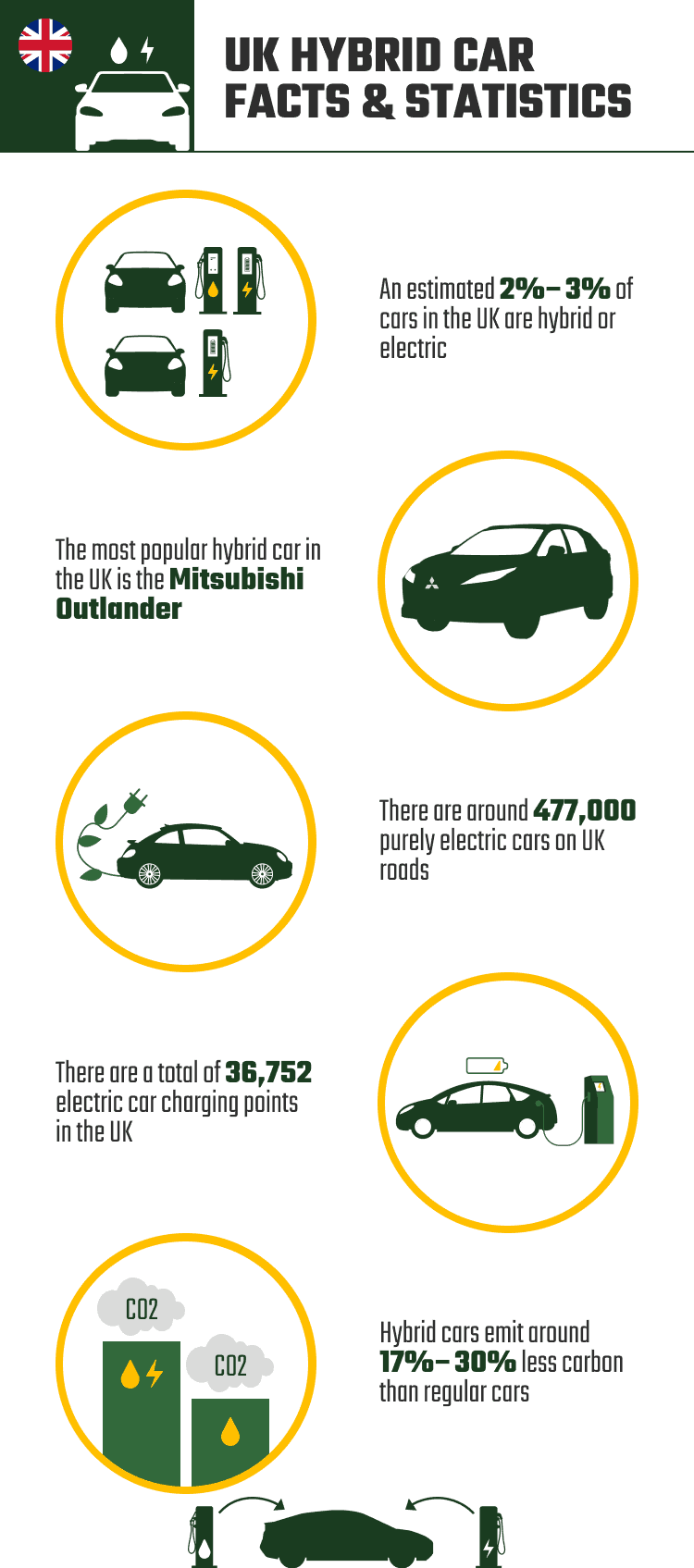
 Hybrid Car Ownership
Hybrid Car Ownership
1. An estimated 2%–3% of cars in the UK are hybrid or electric
(heycar)
There’s been a significant increase in the percentage of hybrid cars in the UK over the last 5 years. In 2020, electric vehicles increased by 186%. More electric cars were sold in the UK in 2021 than in the previous 5 years despite the Covid-19 pandemic, with 7% of those cars being plug-in hybrid electric vehicles (PHEV).
There’s also a growing demand for used electric cars; and this demand hit an all-time high in 2021, with 40,228 vehicles sold. In 2022, 137,498 new electric cars were sold in the UK, making up 14% of new vehicles sold.
The use of hybrid cars in the UK is expected to grow in the coming years since the UK is preparing itself for the 2030 ban on the sale of new petrol and diesel vehicles. Ultimately, there has never been a better time to purchase a hybrid car.
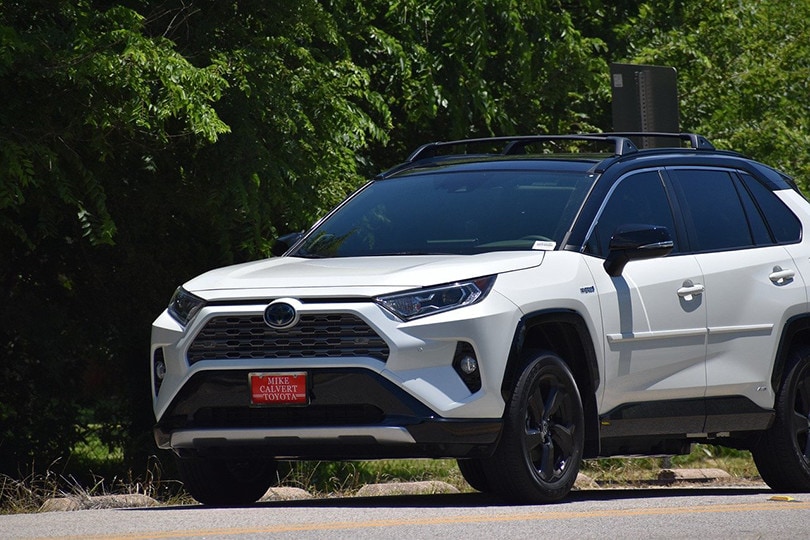
2. The most popular electric car in the UK is the Mitsubishi Outlander.
(Statista)
The most popular PHEV model in the UK is the Mitsubishi Outlander. More than 46,400 units were sold by June 2020, and it has been a best seller since. It’s a compact crossover SUV and was first introduced in 2013 as part of the model 3rd generation launch. It has been ranked third in cumulative hybrid vehicle registrations by the European Union.
The UK’s second most popular hybrid car is the Nissan Leaf, with more than 31,400 models sold in 2022 alone. These two models are way ahead of the BMW 330e, which comes in third, albeit with a lower sale value.
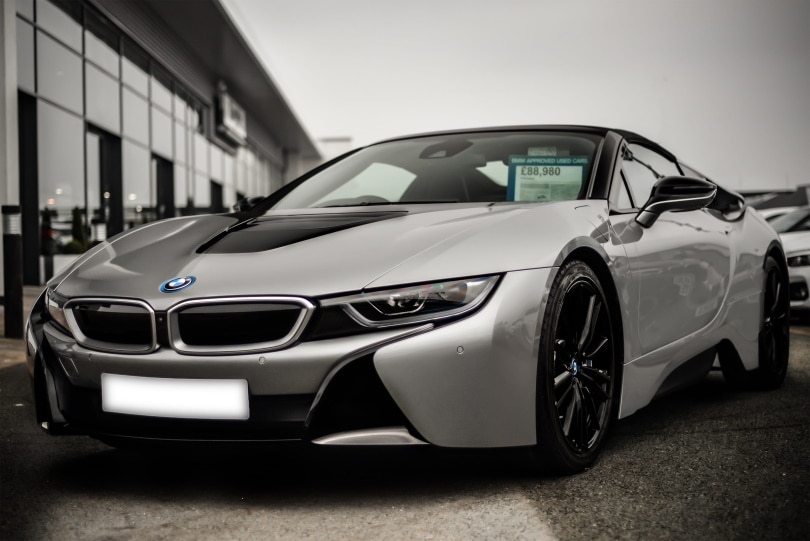
3. There are around 477,000 purely electric cars on UK roads.
(RAC)
Electric car sales have risen dramatically in the past 5 years. By June 2022, there were around 477,000 hybrid cars on UK roads. Last year saw the largest annual increase in hybrid and electric vehicles, including used hybrid cars.
These numbers reflect the rise in demand for hybrid and electric cars and the decline in traditional vehicles. It also shows the increase in environmental awareness due to the effects of pollution from petrol and diesel fuel cars.
4. More than half of younger drivers are likely to switch to electric or hybrid cars in the next 10 years.
(GOV UK)
With the UK looking to ban vehicles reliant on fossil fuels by 2030, younger people are likely to switch to hybrid or electric cars. They have more hybrid models to choose from, including used cars, and the UK also has more charging infrastructure compared to other countries making it easier to own a PHEV vehicle.
Shockingly, transport is responsible for more than 47% of all greenhouse gasses in the UK. More than 44% of all the drivers in the UK, regardless of age, are likely to switch to a hybrid car or an all-electric vehicle over the next 10 years.
Hybrid Cars and the Environment
5. Hybrid cars emit around 17%–30% less carbon than regular cars.
(eDF)
Hybrid cars are better for the environment compared to regular vehicles. They emit less carbon, around 17%–30%, compared to traditional vehicles that rely on fossil fuels for power. Producing them also releases fewer greenhouse gasses and pollutants in the environment.
According to the Mayor of London, road transport is to blame for more than half of all pollution in London. That is why the UK government is looking to increase the number of hybrid cars on the roads. The UK has set a target that the sale of new petrol and diesel cars will be banned by 2030. They are looking to cut carbon emissions to zero by 2050, and hybrid vehicles have a significant role to play in that.
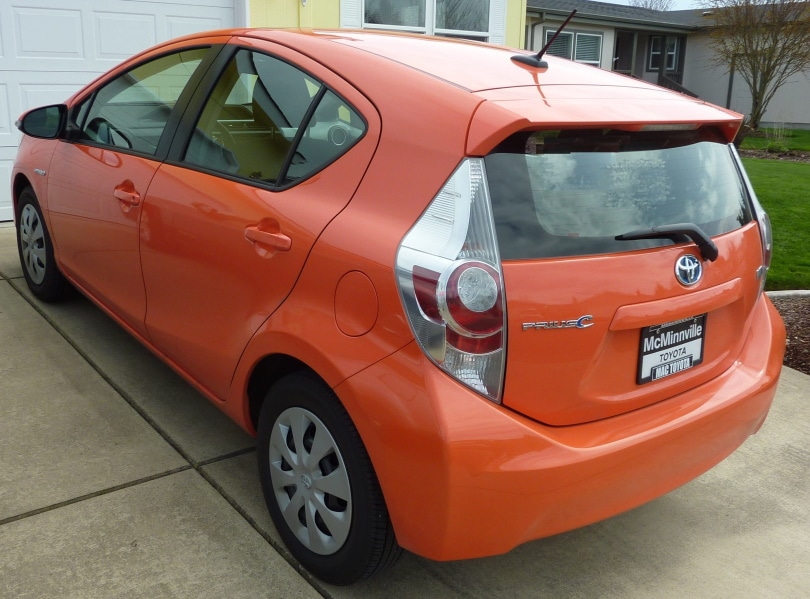
Charging Ports in the UK
6. Around 59% of UK drivers are worried about the charging time of electric cars.
(GOV UK)
A survey conducted on the charging of electric cars found that an estimated 54% of UK respondents are worried about the charging time. Around 93% of the respondents involved in the study reported having access to charging ports in their homes. The older respondents, age 55 and older, are more likely to have a smart charger installed than those 35–54.
Those with charging ports at home reported charging their cars both during the day and overnight. Overnight charging is more common compared to daytime charging, with 90% of all the surveyed respondents reporting using the chargers only at night.
Most surveyed respondents were worried that their vehicles did not have enough charging time, with some concerned that they overcharged the batteries and risked ruining them.
7. There are a total of 36,752 charging points in the UK.
(ZAP MAP)
The charging infrastructure has improved tremendously in the UK over the past few years to meet the growing demand for hybrid and electric cars. With new public charging points being added daily, there is likely to be a drastic increase in the number of electric charging ports in the UK in the next 5 years. There’s also an increase in slow chargers that enable people to charge their cars on the street.
These numbers don’t include the many charging ports in people’s homes and workplace locations, estimated to be around 400,000. Some are even open to the public through community and visitor charging.
The total number of charging devices is 36,752, with Greater London having the most EV charging ports, followed by South-East and Scotland. This number aggregates all the different types of charging devices, and it’s vital to know which one is compatible with your car to avoid ruining the battery.
Are There Disadvantages to Hybrid Cars?
While the idea of a hybrid vehicle sounds great and is pushed for being environmentally friendly, there are several disadvantages to owning this type of car. However, the advantages still far outweigh the disadvantages. Some disadvantages include:
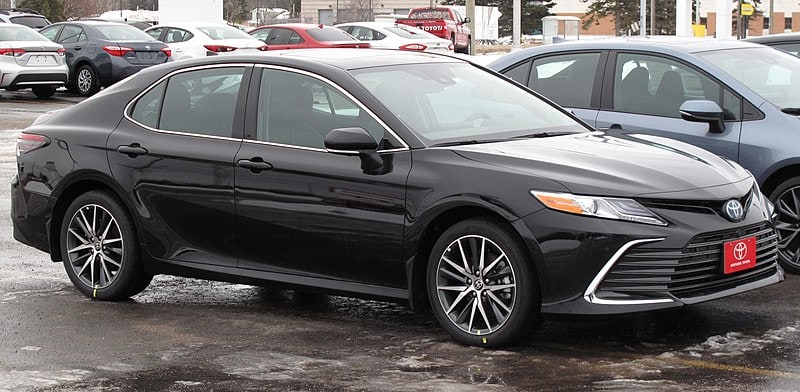
High Cost of Purchasing
Hybrid cars are more expensive than regular cars, which locks out most people from ownership. All the technology required to operate and run this car increases the production cost, directly increasing the overall purchasing cost of hybrid vehicles. The maintenance is also quite pricey.
Although most manufacturers offer comprehensive warranties for most parts, including batteries and electric motors, for up to 7 years, you need to be ready for additional maintenance costs before purchasing a hybrid car.
Higher Insurance Rate
The insurance premium on hybrid cars is often more expensive than that of regular vehicles. The higher premiums are due to the high purchasing cost and the cost of the hybrid technology. Hybrid cars are more expensive to repair compared to other vehicles. They are also found more in urban areas where the insurance rates are higher.
Fuel Economy
Although hybrid cars are quite environmentally friendly, they do the same damage to the environment as regular cars when driven a long distance, after switching over from the electric engine. However, they do release fewer pollutants in cities.
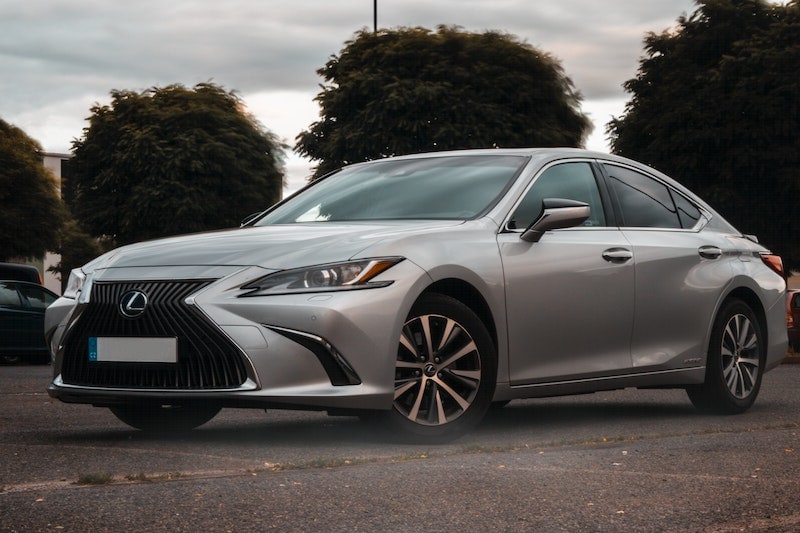
Performance
Hybrid cars are usually made with one motive in mind: improving fuel emissions and lowering carbon emissions in the environment. This means that the designers of hybrid vehicles must compromise on the shape of the car and its performance to meet this goal. Apart from a few brands, including the Porsche Panamera E-Hybrid Turbo S, due to the higher mass from extra parts hybrid cars are often slower than their regular counterparts.
Less Power
Hybrid cars combine an electric motor and a gasoline engine, with the gasoline engine acting as the power source. Therefore, neither works as well as they do in regular cars, reducing their operating power. They work at average power and are the best for people who drive around for short distances.
Frequently Asked Questions
Are electric cars better?
For the most part, yes. Compared to traditional petrol and gasoline vehicles, hybrid and electric cars are better in terms of energy efficiency, convenience, and maintenance. They are also more eco-friendly. But since hybrid vehicles still rely on gasoline, purely electric vehicles are the best option for the environment.
Where can you charge an electric car?
Public charging stations have several charging ports for different cars and are located across the UK, especially in cities. Hybrid drivers can also charge their cars at home or their workplace using fast chargers that take about 30 minutes to charge the battery fully.

Conclusion
Hybrid vehicles are eco-friendly and greatly benefit the environment and cities in general by improving air quality. They also have a higher resale value than regular cars and are more lightly manufactured.
Other benefits of hybrid cars include the fact that they are more energy efficient than conventional vehicles, and they require less maintenance. Plug-in hybrids are the bridge between electric and gas-powered vehicles, offering the best of both worlds.
Featured Image Credit: GoranH, Pixabay
Contents


 Hybrid Car Ownership
Hybrid Car Ownership